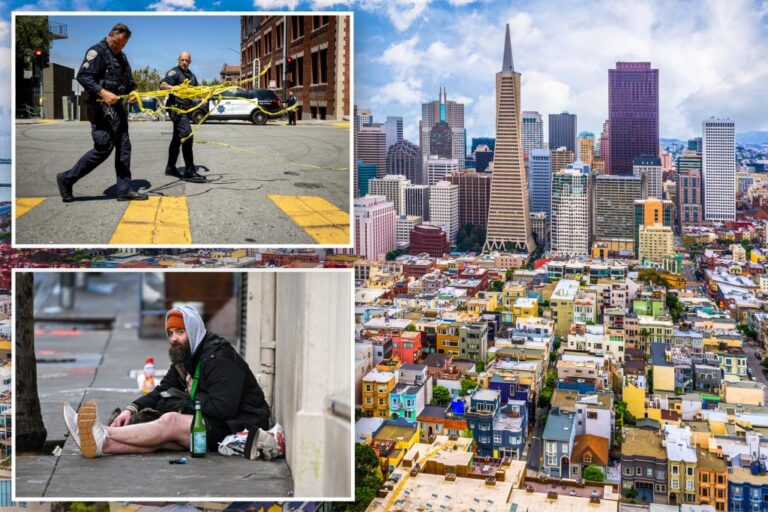San Francisco Faces Steep Decline in Quality of Life Rankings
Once celebrated as a pinnacle of urban living in the United States, San Francisco has witnessed a dramatic drop in its desirability as a place to live. According to the Milken Institute’s latest study, the city fell from 27th place last year to a staggering 126th this year, with various factors contributing to this downturn.
Factors Behind the Decline
The Milken Institute’s annual assessment evaluates cities based on metrics such as job growth, wage increases, housing affordability, and economic equality. San Francisco, which topped the list in 2020, has since been marred by escalating living costs, surging crime rates, and a significant increase in homelessness.
Corporate Exodus and Economic Implications
Since the onset of the COVID-19 pandemic, the Bay Area has experienced the relocation of numerous major corporations. Companies including X, Oracle, Tesla, Hewlett Packard, Charles Schwab, and Palantir have severed ties with the Bay Area, relocating to states like Texas and Colorado. These companies have cited California’s prohibitively high operational costs and a challenging regulatory environment as primary reasons for their departures.
Crime and Public Safety Challenges
The situation is further complicated by a troubling increase in crime rates throughout the region. Oakland has recorded 114 homicides in 2023, making it the fourth consecutive year with over 100 murders. In response to rising concerns about public safety, California Governor Gavin Newsom signed new legislation aimed at countering organized retail crime, which has seen a significant rise in recent months. To enhance safety measures, the San Francisco Police Department has begun utilizing high-tech drones for monitoring and surveillance.
A Costly Urban Living Environment
San Francisco consistently ranks among the most expensive cities in the nation, sharing this dubious honor with New York, San Jose, and Honolulu. The spiraling costs of living, combined with the deteriorating quality of life, have raised broader concerns about the city’s future.
Political Ramifications and Leadership Change
The decline in San Francisco’s living conditions has not gone unnoticed politically. In a recent mayoral election held on November 5, billionaire philanthropist Daniel Lurie emerged victorious over incumbent Mayor London Breed, securing approximately 56% of the vote. Lurie, known for founding the non-profit organization Tipping Point Community, becomes the first political outsider to assume the mayoral role since 1911.
His campaign focused on key issues including crime reduction, addressing homelessness, and improving housing affordability. Lurie has pledged to prioritize public safety through bolstered police staffing and to secure 1,500 shelter units within the first six months of his administration.
Outlook and Future Efforts
As the city grapples with these multifaceted challenges, the implications for its economy and social fabric remain significant. The path ahead will require strategic efforts aimed at revitalizing the city’s appeal, ensuring sustainable growth, and fostering a sense of community amidst ongoing difficulties.



